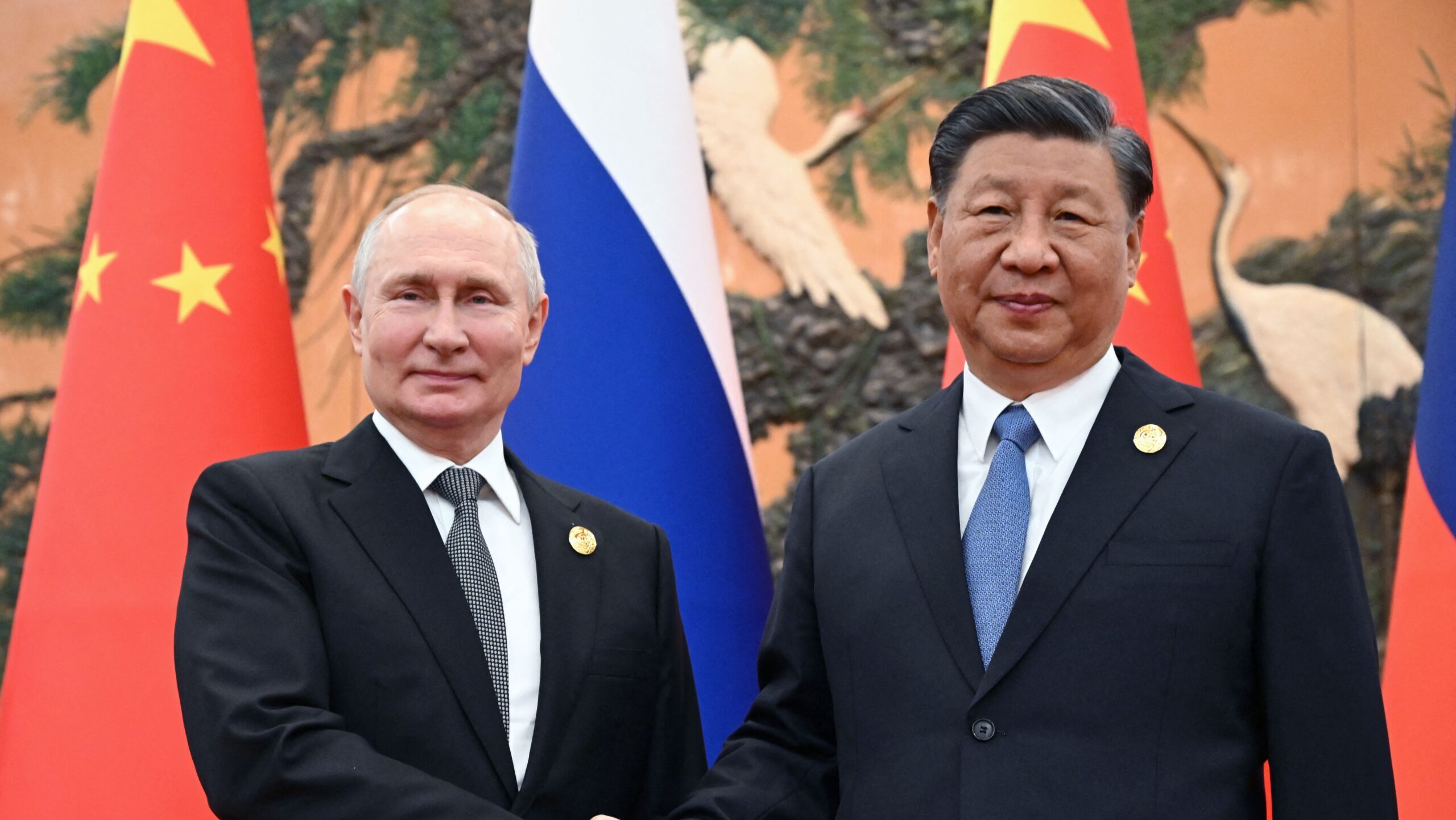Russia 'likely' to transfer submarine tech to China, N. Korea ...
This pool photograph distributed by Russian state-owned agency Sputnik shows Russia’s President Vladimir Putin and Chinese President Xi Jinping shaking hands during a meeting in Beijing on October 18, 2023. (Sergei Guneyev/AFP via Getty Images)

HALIFAX, CANADA — The growing ties between China, Russia, Iran and North Korea have been the source of Western leaders’ ire for several years, but seem to be reaching a new, critical level, where transfer of the highest level of military technologies between the countries, including key Russian submarine tech, may become routine.
The head of US Indo-Pacific Command, Adm. Samuel Paparo, told an audience today that in exchange for North Korean troops and artillery, Moscow “will likely” provide Pyongyang with missile and submarine technology.
And in exchange for China helping to rebuild “Russia’s war machine,” Paparo anticipates that Moscow will also be sharing submarine technology with Beijing, a move that has the “potential of closing American undersea dominance to the PRC.”
“Where one is resource poor, the others fulfill those resources. Where one has operational needs, the others are fulfilling those needs,” Paparo told the audience at this weekend’s annual Halifax International Security Forum.
That concerning relationship between those four governments was a major theme throughout the Canadian event, with widespread agreement that the Ukraine war has now breached the geopolitical walls between the European and Indo-Pacific theaters for good.
“Those who might believe that you can just isolate the [Russian-Ukraine] conflict or accommodate somehow with Russia, I believe that’s wrong,” Germany’s Minister of State Tobias Lindner told reporters today. “If you’re interested in security in the Indo-Pacific and all those issues you need to have a tough stance on Russia too.”
RELATED: INDOPACOM’s Paparo acknowledges stockpile shortages may impact his readiness
North Korea’s decision to send upwards of 10,000 military personnel and additional weapons to fight alongside Russia forces in Ukraine makes the case stronger, with Dutch Adm. Rob Bauer — chair of the NATO Military Committee — arguing here that it gives the DPRK a potential seat at the negotiation table in ceasefire negotiations, a new complicating factor in the 1,000 day war.
“Not only [do you] have to talk to Russia now, but you also have to deal with North Korea,” Bauer told an audience on Friday. “The North Koreans get technology and weapons systems and ammunition from the Russians as well… This is connecting the world in a way that we didn’t think was possible and it is connected to China.”
While China is not directly sending Russia weapons, Bauer argued that its transfer of key components, like semiconductors and machine tools, is keeping Russia in the fight.
“Without China, Russia would not be able to continue the war,” Bauer added. (Iran has been sending Russia weapons too, including missiles and attack drones.)
Can Ties Be Broken?While Officials in Canada this weekend didn’t have a clear answer on just what to do about the growing ties between the four countries that they view as an existential threat, some advice and words of caution were offered up.
Paparo, the US admiral, proposed finding “opportunities” to “offset” or disrupt some of those budding ties. For example, Russia and North Korea’s relationship is a “bit of an annoyance” for China, and a potential avenue to explore as Western nations look to disrupt the relationship. At the same time, the flow of new defense tech to China and North Korea could be one avenue for the US to strengthen relationships between Pacific partners like Japan and South Korea, he added. But appearing on the same stage as Paparo, Australia’s director-general of the Office of National Intelligence Andrew Shearer was not convinced, saying the strategic partnership will last at least as long as Chinese President Xi Jinping and Russian President Vladimir Putin remain in power.
“The idea of driving wedges between these two,” Shearer said, “is fanciful.”
In order to help disrupt the growing strategic partnerships, Shearer said the Western-aligned nations must “adjust our mindsets, shift our policies and boost our defense spending and become, frankly, more assertive.”









































